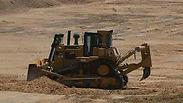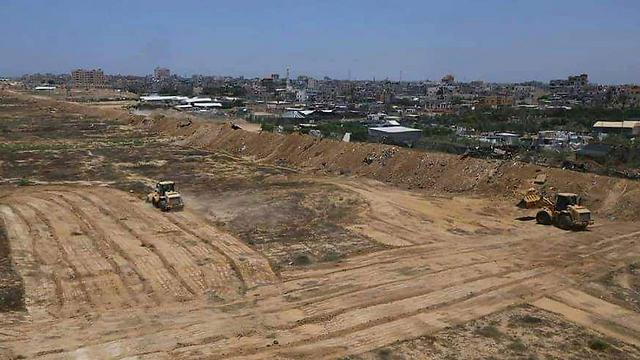
Buffer zone construction works
Egypt expands buffer zone along Gaza border
Egypt bulldozes at least 140 homes along its border with Gaza to expand buffer zone, in a combined effort with Hamas to prevent weapons and ISIS and other militants from crossing over.
Egypt’s military has bulldozed at least 140 homes and more than 200 acres along the Gaza Strip border, expanding a buffer zone in an effort to cut off the flow of weapons and militants.
The governor of Northern Sinai province, Maj. Gen. Abdel-Fatah Harhour, told The Associated Press late Monday that the military began a new phase in clearing the zone, which is 1,500 meters (4,900 feet) wide and 10 kilometers (6 miles) long.
Egypt has struggled to combat an Islamic State-led insurgency in the northern Sinai since 2014, and has built the buffer zone to prevent the militants from using a vast tunnel network under the border that was created to evade a decade-old Israeli and Egyptian blockade on the territory.
Palestinian-based terror group turned political party Hamas has also worked to secure the border in recent months as it tries to improve ties with Cairo. Hamas has cracked down on more extreme rivals, including supporters of the Islamic State group.
Harhour said the government has promised to compensate those who lost their homes and farms. “We have created committees to list those who should receive such compensation,” he said.
He said the residents at first received checks worth 3,000 Egyptian pounds (nearly $170) each to pay for “alternative accommodation.”
However, a tribal leader, Sheikh Issa Karafin, said some evacuees haven’t received the money yet.
“The checks were uncovered,” said Kharafin who left Rafah last year to relocate to the Suez Canal city of Ismailia over threats from Islamic State militants.
He said the military came in August and asked people to collect their belongings to leave the area as soon as possible. Kharafin said he has helped over two dozen of the evicted families find places to live in Ismailia over the past two weeks.
One resident said he and his family live in a desert area, “in huts with no electricity or water.” He spoke to the AP on condition of anonymity for fear of retribution from authorities.











